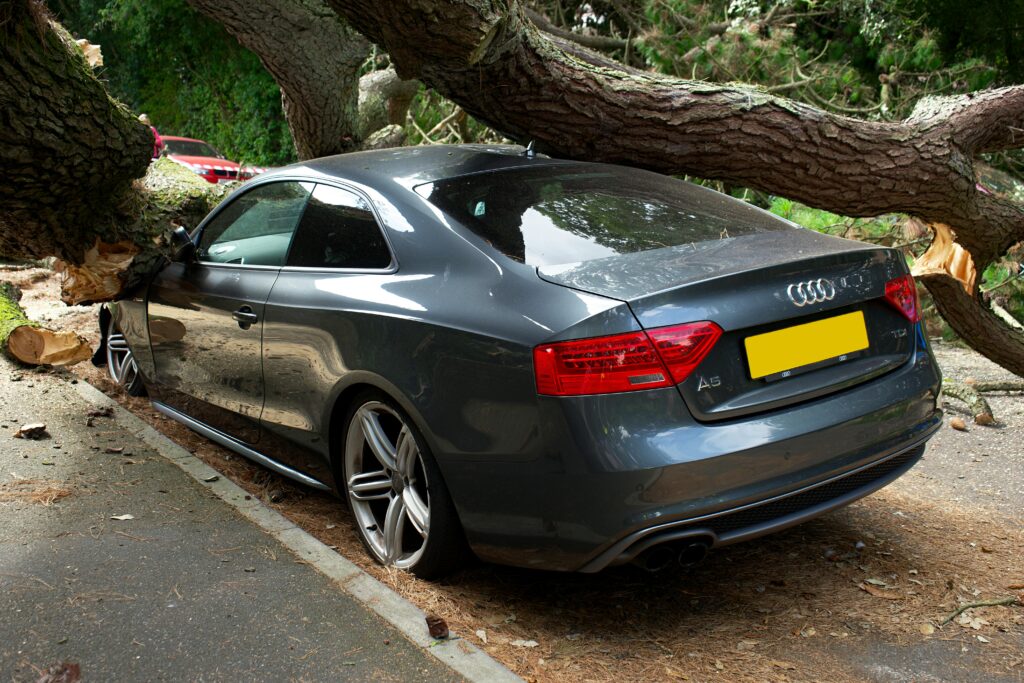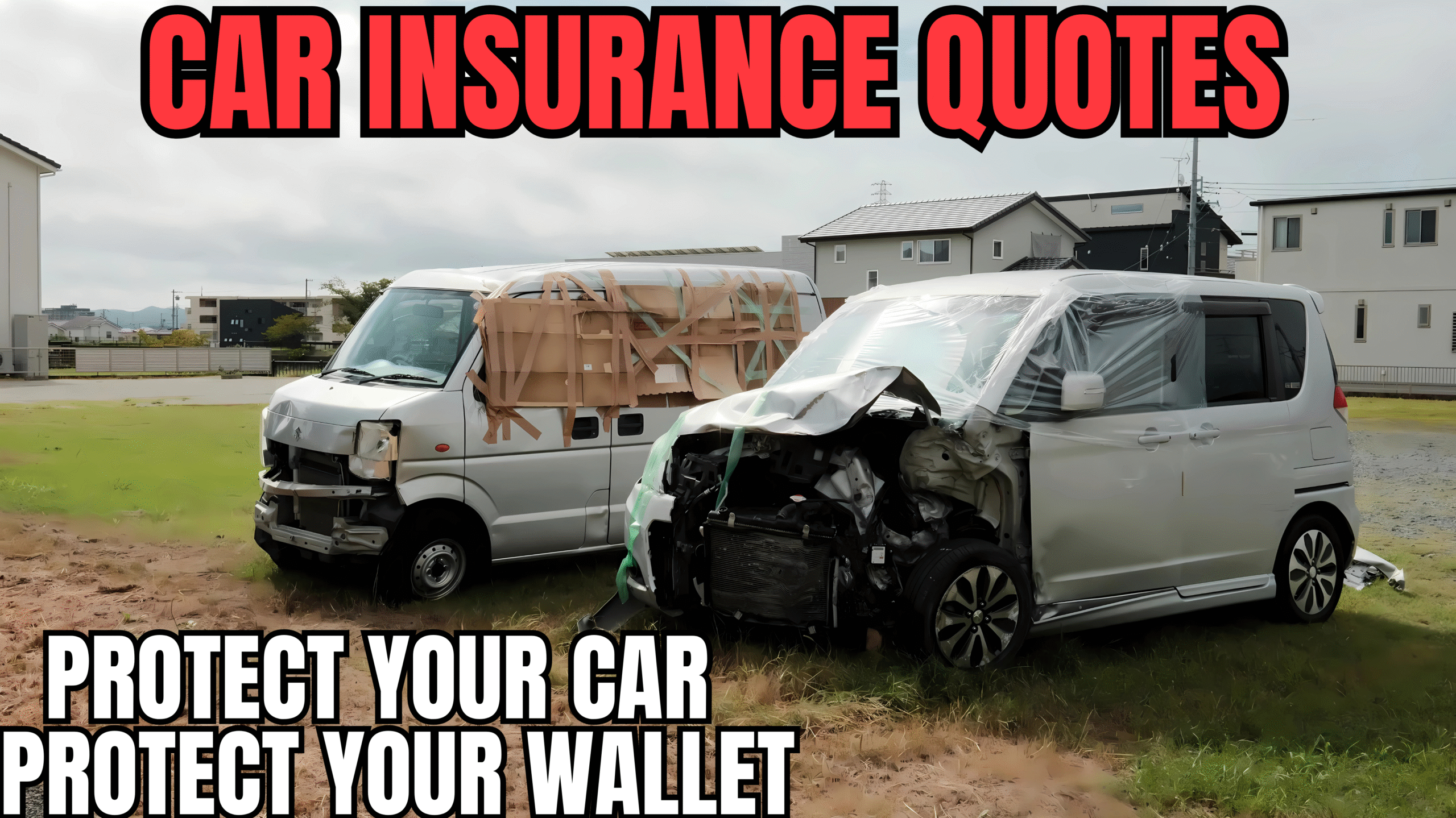Table of Contents
When you buy or drive a car, one thing you can’t escape is insurance. It’s not just about legal requirements; it’s about protecting your peace of mind. Whether you’re searching for cheap policies, exploring the best options available, or simply looking to grab free quotes online, this guide has got you covered. This guide is designed to walk you through everything you need to know about car insurance quotes, from how they’re calculated to how you can find the most affordable options. We’ll keep it conversational, simple, and packed with tips you can apply right away.
What Exactly Are Car Insurance Quotes?
Let’s start with the basics. Think of a car insurance quote as a rough draft of your policy cost before you decide to buy. This estimate isn’t random. Instead, it’s calculated using multiple factors like your age, driving history, car type, location, and even your credit score.
Think of a quote as a sneak peek into the cost of protecting yourself and your vehicle. It’s not a final price, but it gives you a ballpark figure of what to expect. That’s why people often compare car insurance quotes before committing to a policy—because even a small difference in monthly premium can save hundreds of dollars over time.
Why Car Insurance Quotes Can Save You More Than Just Money.
Many drivers overlook the importance of comparing quotes. They assume all companies offer similar prices. But here’s the truth: insurance rates can vary drastically. One provider may quote you $120 a month, while another—using the exact same information—could charge $80.
By not shopping around, you could be overpaying for coverage you could get elsewhere at a lower price. And who doesn’t want low-cost car insurance quotes when budgets are already tight? Comparing is more than just saving money; it’s about ensuring you get the right coverage at the right price.
How Are Car Insurance Quotes Calculated?
Insurance companies aren’t guessing when they give you a number. By running your details through risk assessments and smart technology, insurers decide your level of risk. Higher risk usually translates into higher costs. Some key factors include:
- Driving record – Accidents, tickets, or DUIs can increase your rates.
- Age and gender – Young drivers often face higher premiums.
- Type of vehicle – Sports cars and luxury models often come with higher insurance costs.
- Location – Urban areas with higher accident rates may raise costs.
- Credit score – Believe it or not, your financial behavior can influence your quote.
Understanding these factors helps you know why one company might offer you affordable car insurance quotes while another seems overpriced.
The Magic of Online Car Insurance Quotes
Gone are the days when you had to call multiple agents, wait on hold, and jot down prices on paper. Now, you can get online car insurance quotes within minutes. Just enter your details into an online form, and dozens of companies can send you estimates instantly.
The best part? Many platforms allow side-by-side comparisons. This way, you can clearly see which company offers the best options for your specific situation. Plus, online tools are usually free—so you’re not spending money to save money
Cheap Car Insurance Quotes: Do They Exist?
Everyone loves the word “cheap.” But when it comes to car insurance, cheap doesn’t always mean good. While it’s possible to find low-priced policies, you have to be careful. Some companies might reduce the premium by cutting essential coverage.
The smarter move is to aim for plans that balance cost with strong protection. After all, saving $20 a month isn’t worth it if your coverage fails you after an accident. So, look for policies that give you value, not just a low number.
Auto Insurance Quotes in the USA: What Makes Them Unique?
If you’re searching specifically for auto insurance quotes USA, you’ll notice that rates differ from state to state. Why? Because every state has its own rules, minimum coverage requirements, and average accident rates.
For example, car insurance in Michigan has historically been more expensive than in Maine. Likewise, city dwellers in New York may pay more than rural drivers in Montana. Knowing your state’s insurance landscape helps you better understand whether your quote is fair or inflated.

Instant Car Insurance Quotes: Fast Doesn’t Mean Reckless
In today’s fast-paced world, nobody wants to wait. That’s why instant car insurance quotes are so popular. With just a few clicks, you can receive an estimate on your screen without speaking to a human.
But here’s the catch: instant quotes rely heavily on the information you provide. If you leave something out or make an error, the final price after underwriting may be higher. So, while instant quotes are super convenient, always double-check your details for accuracy.
Car Insurance Quotes for Young Drivers: A Tough Market
Young drivers often face a rude awakening when they see their first insurance quotes. Because of limited driving experience, insurers label them as “high risk.” That’s why car insurance quotes for young drivers tend to be on the higher side.
But don’t worry—there are ways to lower costs. Good student discounts, defensive driving courses, and being added to a parent’s policy can significantly reduce premiums. It might take some effort, but affordable options are within reach, even for first-time drivers.
Comparing Car Insurance Quotes: The Smartest Strategy
If you take only one tip from this guide, let it be this: always compare before you commit. A single comparison could save you hundreds—or even thousands—each year.
When doing an online car insurance quotes comparison, look beyond the numbers. Check coverage limits, deductibles, and additional perks like roadside assistance The lowest-priced policy might look good, but it’s not a real bargain if it doesn’t give you enough coverage.
Tricks to Get Affordable Car Insurance Quotes
Looking for insider tips? Here are some strategies:
- Bundle policies – Combine home and auto insurance for discounts.
- Maintain good credit – A higher credit score often means lower premiums.
- Raise your deductible – Willing to pay more out of pocket? You’ll pay less monthly.
- Use telematics – Some insurers reward safe drivers who use monitoring devices.
- Ask about discounts – From military service to low mileage, you might qualify.
These simple tweaks can turn a high quote into an affordable car insurance quote you can actually manage.
The Future of Car Insurance Quotes: What’s Next?
Technology is reshaping the way we get quotes. AI, machine learning, and big data are helping insurers provide more accurate pricing. Soon, you might even see quotes customized in real time as you drive, thanks to connected cars and smart devices.
With innovations like pay-as-you-go insurance and usage-based pricing, the days of one-size-fits-all policies are fading. This means even more opportunities to find budget-friendly coverage that perfectly matches your driving habits.
Final Thoughts: Your Roadmap to Smarter Choices
At the end of the day, insurance isn’t just about numbers—it’s about peace of mind. Whether you’re after a budget-friendly policy, the most reliable coverage, or simply want to compare different options, the goal is to protect yourself, your passengers, and your wallet.
Take advantage of free online quotes, experiment with different coverage levels, and don’t shy away from negotiating with providers. Remember, the initial estimate isn’t set in stone—it’s just a starting point for finding a policy that truly works for you.
Frequently Asked Questions (FAQs) About Car Insurance Quotes
1. What is the cheapest way to get car insurance quotes?
The cheapest way is to use online comparison tools. They let you compare multiple providers side by side. Also, ask about discounts like safe driver, low mileage, or bundling policies.
2. Are free car insurance quotes really free?
Yes, most companies and comparison websites offer free car insurance quotes online. You don’t have to pay anything, and you can request as many quotes as you want without obligation.
3. How come car insurance quotes change from one company to another?
Quotes differ because each company uses its own formula. Factors like your age, driving history, car type, and location all play a role. That’s why it’s important to compare car insurance quotes instead of settling for the first one.
4. Can young drivers get affordable car insurance quotes?
Yes, but it’s often challenging. Car insurance quotes for young drivers are higher due to inexperience Costs can drop if young drivers take defensive driving classes, perform well in school, or stay on their parents’ policy.
5. How long does it take to get instant car insurance quotes?
Thanks to technology, you can get instant car insurance quotes within a few minutes online. Just enter your details, and you’ll see estimated prices right away.
6. What’s the difference between cheap and affordable car insurance quotes?
“Cheap” often refers to the lowest price, but it may sacrifice coverage. “Affordable” means you’re getting good protection at a price that fits your budget. Aim for affordability, not just the lowest number.
7. Are online car insurance quotes accurate?
They’re fairly accurate but not final. Your actual premium might change after the insurer verifies your information. Make sure to review the information you enter carefully so there are no unexpected changes later.
8. Do I need multiple car insurance quotes before buying?
Absolutely. Experts recommend getting at least three to five car insurance quotes before making a decision. This ensures you’re not overpaying and helps you find the best coverage.
9. Can I switch providers if I find a better quote?
Yes, you can switch at any time. If you find a low-cost car insurance quote that offers better coverage, you can cancel your old policy and switch—just make sure there’s no gap in coverage.
10. What information do I need to get a car insurance quote?
Usually, you’ll need:
- Your driver’s license number
- Vehicle details (make, model, year, VIN)
- Driving history
- Current insurance info (if applicable)
Providing accurate details ensures you receive the most reliable estimate.
Welcome to kingymab. online! I’m Muhammad Ali, an AI-Powered SEO and Content Writer with 4 years of experience. I help websites rank higher, grow traffic, and look amazing. My goal is to make SEO and web design simple and effective for everyone. Let’s achieve more together!

